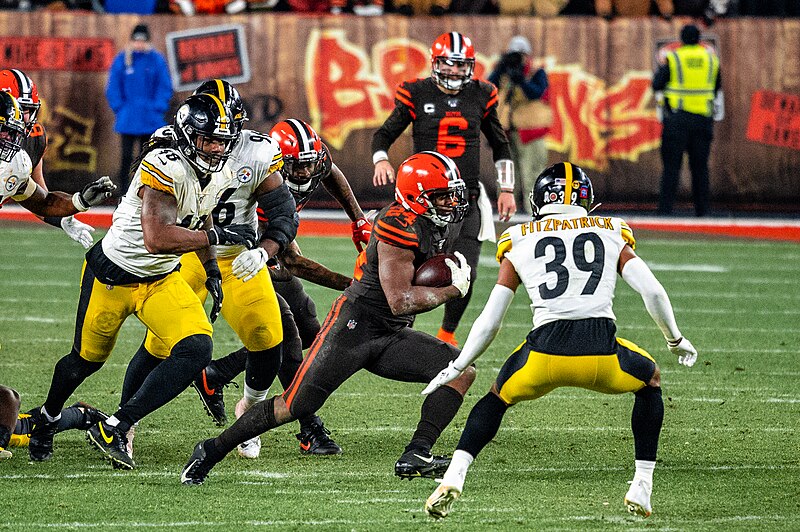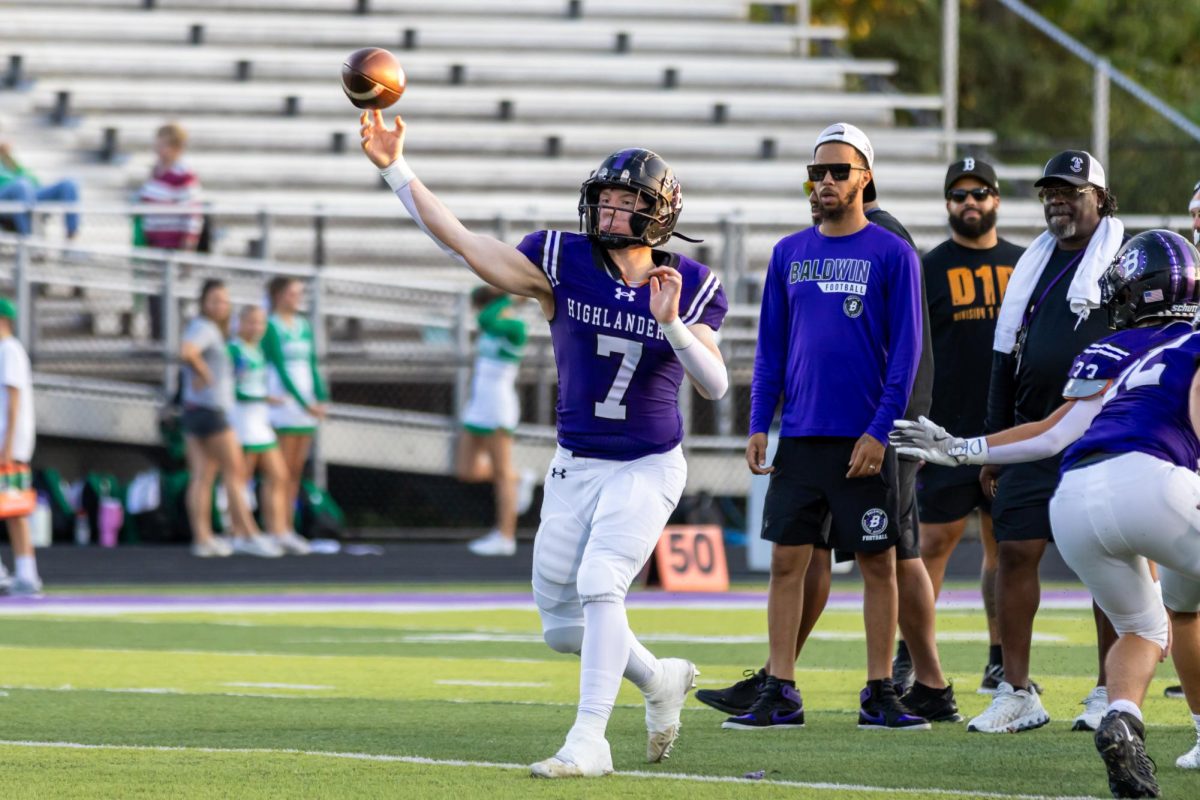On Monday a night where Cleveland Browns star running back Nick Chubb looked like he was going to continue his dominance over the Steelers, his night, and season, were quickly ended with a brutal leg injury.
Even with Chubb’s elite status as a running back in the NFL, he does not make nearly as much as the highest-paid quarterback or wide receiver. In fact, even Christian McCaffery of the 49ers, the league’s highest-paid running back, only makes an average annual salary of $16 million. But why?
For one, the running back is the most replaceable position in the NFL because most of the player’s production is based on his offensive line. As evidence, after Chubb was hurt, backup Jerome Ford came in the game and was able to have an immediate impact, scoring a touchdown and having a 69-yard run later in the game.
To say that an elite running back is not helpful would be untrue. But unlike other positions, it is not essential to a team’s success in the modern NFL.
No running back on a Super Bowl-winning team from 2009 to 2021 has made an average annual salary of over $2,500,000 or had elite status, proving how little having an elite running back contributes toward winning championships.
Additionally, it is even looked down upon to draft a running back in the first round anymore.
Gone are the days of drafting a workhorse, every-down running back. With the popularization of the West Coast offense, teams have focused more on helping their quarterback with an elite offensive line and wide receivers rather than a running back who can carry the ball 30+ times per game.
Even given their replaceability, though, there is an argument that running backs deserve compensation for their injuries.
While it is true that running backs are subject to many different injuries due to how physically demanding the position is, the NFL is a business. It would not make sense to pay a certain position more than it should get due to the risk of injury, especially when those athletes can be easily replaced by someone else for less money.












